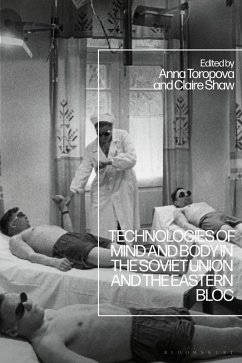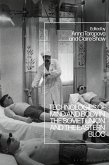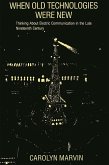The project to create a 'New Man' and 'New Woman' initiated in the Soviet Union and the Eastern Bloc constituted one of the most extensive efforts to remake human psychophysiology in modern history. Playing on the different meanings of the word 'technology' - as practice, knowledge and artefact - this edited volume brings together scholarship from across a range of fields to shed light on the ways in which socialist regimes in the Soviet bloc and Eastern Europe sought to transform and revolutionise human capacities. From external, state-driven techniques of social control and bodily management, through institutional practices of transformation, to strategies of self-fashioning, Technologies of Mind and Body in the Soviet Union and the Eastern Bloc probes how individuals and collectives engaged with - or resisted - the transformative imperatives of the Soviet experiment.
The volume's broad scope covers topics including the theory and practice of revolutionary embodiment; the practice of expert knowledge and disciplinary power in psychotherapy and criminology; the representation and transformation of ideal bodies through mass media and culture; and the place of disabled bodies in the context of socialist transformational experiments. The book brings the history of human 're-making' and the history of Soviet and Eastern Bloc socialism into conversation in a way that will have broad and lasting resonance.
The volume's broad scope covers topics including the theory and practice of revolutionary embodiment; the practice of expert knowledge and disciplinary power in psychotherapy and criminology; the representation and transformation of ideal bodies through mass media and culture; and the place of disabled bodies in the context of socialist transformational experiments. The book brings the history of human 're-making' and the history of Soviet and Eastern Bloc socialism into conversation in a way that will have broad and lasting resonance.









